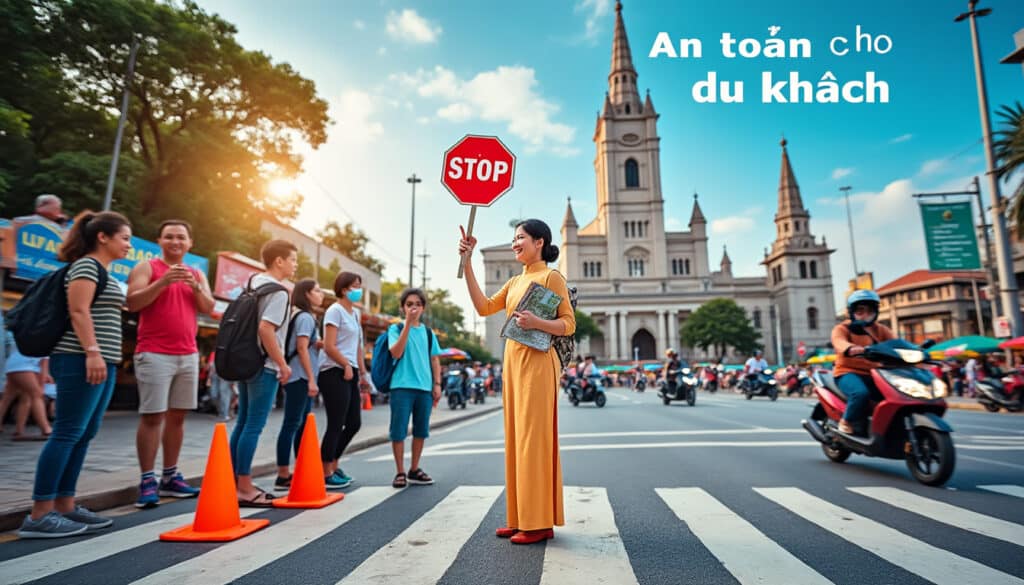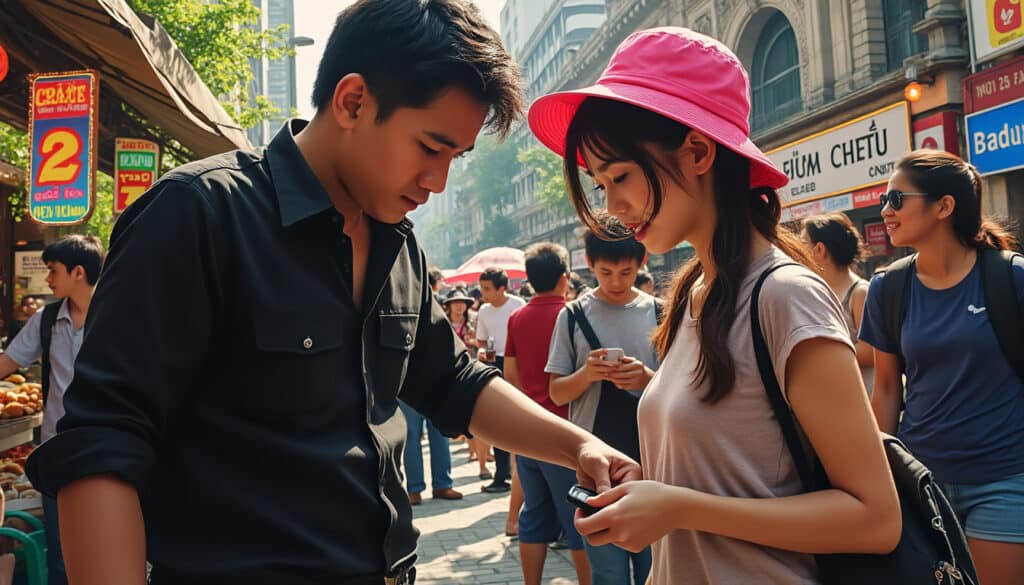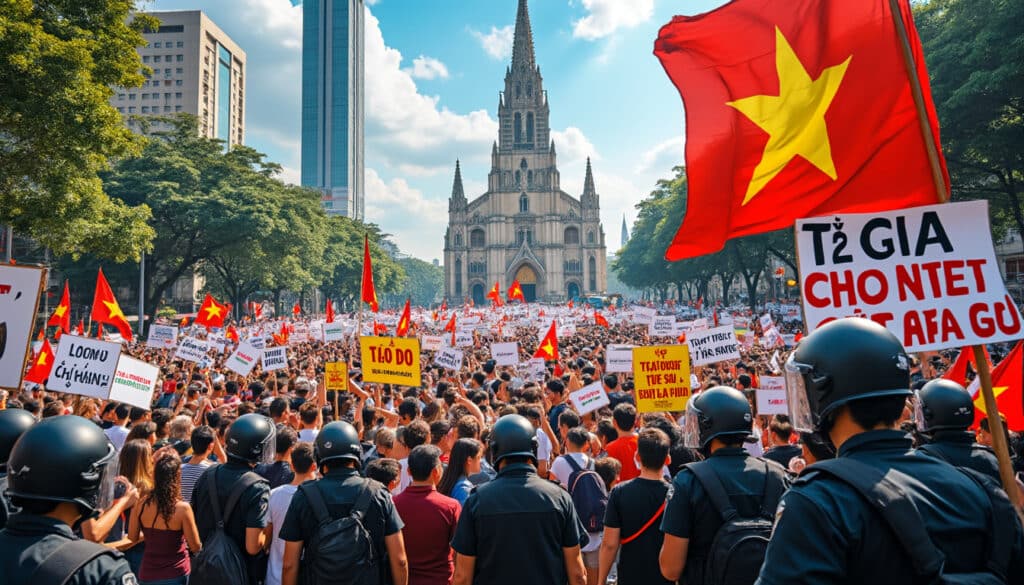Ho Chi Minh City, also known as Saigon, is the bustling heart of Vietnam, a city renowned for its vibrant mix of cultures, captivating history, and bustling streets. Yet, amid the aromatic allure of street foods and the lively energy of night markets, lies the question of transport safety. Whether you’re a first-time traveler or a local, navigating through Ho Chi Minh’s unique traffic landscape requires more than just courage; it necessitates awareness and caution. This article delves into essential insights about traffic hazards, safety measures, and reforms shaping transport safety in this dynamic metropolis, providing travelers and city dwellers with practical knowledge and advice for safer journeys.
Understanding Ho Chi Minh’s Traffic Dynamics
To truly understand the transportation intricacies of Ho Chi Minh City, one must first comprehend the sheer volume of traffic that courses through this urban jungle. Home to over 10 million vehicles, including motorbikes, cars, and an increasing number of buses, the city’s roadways are bustling with activity day and night. Such traffic density leads to frequent congestion, and navigating through it can be daunting for newcomers and seasoned citizens alike.
Moreover, certain areas such as the city center, famous for its rich history and vibrant culture, experience heavy traffic, making commuting a time-consuming affair. The roads, initially designed for a smaller volume of vehicles, are now handling a volume much greater than initially intended, resulting in bottlenecks and slow-moving traffic.
This urban sprawl has catalyzed significant initiatives like the development of the Ho Chi Minh City Metro, aimed at providing an alternative, efficient mode of transport to ease traffic woes. Despite construction lagging behind schedule, its imminent operation represents hope for reducing congestion.
Navigating Ho Chi Minh’s streets can be made easier by understanding the rhythm of its traffic. Peak hours typically align with the start and end of the local workday. Planning travel around these hours might save precious time otherwise spent in gridlock.
The Impact of Law and Enforcement on Traffic Safety
The introduction of Decree 168 has played a pivotal role in enhancing traffic discipline. This decree enforces stricter penalties for common traffic violations, significantly reducing incidents like driving on sidewalks and ignoring traffic signals. Yet, while the enforcement of these rules has improved safety, it has also revealed infrastructure inadequacies, with increased compliance leading to longer vehicular queues.
The effectiveness of these regulations can largely be attributed to the efforts of the Ho Chi Minh City Traffic Safety Committee. Initiatives from free seminars to the distribution of safety pamphlets have educated the public on road safety and responsible driving behaviors.
However, with the enforcement come challenges. Ho Chi Minh’s traffic management system frequently encounters hiccups, from signal malfunctions to delayed response times in accident scenarios. These challenges are being addressed by city authorities, though improvements are slow to come to fruition due to budgetary and logistical constraints.
Mai Linh Group and Vinasun Taxi have embraced these changes by ensuring their drivers adhere to new traffic regulations, further pushing public transport towards safer standards.
- 🚫 No parking on sidewalks
- 🚦 Stricter penalties for ignoring traffic lights
- 🏍 Avoid motorcycle overloads
Motorbike Culture and Safety Concerns
The motorbike is the quintessential symbol of Vietnamese transportation, a preferred choice for its affordability and maneuverability through the city’s tight lanes and alleys. Yet, with over 90% of the city’s residents relying on motorbikes, safety concerns abound.
Last year, reports cited over 1,734 road accidents, with a high percentage involving motorbikes. The prevalent causes include reckless driving, disregard for traffic signals, and the infamous but dangerous habit of phone usage while riding.
The city continues to advocate for improved safety measures, including helmet use and the reduction of passengers per bike. Though the local government, through campaigns and coordination with companies like Be Group and Grab, aims to enhance rider safety, some cultural habits remain hard to change.
Despite the challenges, initiatives like “Safe Ride” programs, incentivizing safe driving practices through rewards, have seen an increase in awareness and compliance amongst younger riders. The advent of ride-sharing applications has also introduced a layer of oversight and safety protocols, offering additional peace of mind for those seeking safer travel options.
- 🛵 Always wear a helmet
- 📵 Avoid using phones while driving
- 👥 Limit two passengers per motorbike
Technological Initiatives Aiming to Improve Safety
The deployment of Intelligent Transportation Systems (ITS) marks a significant step forward in Ho Chi Minh’s transportation evolution. These systems utilize AI-driven traffic cameras and automated penalty systems to deter violations more effectively and guide traffic flow with precision.
As traffic signals are upgraded, monitor briefings and road safety apps provided through collaborations with Saigon Newport Corporation allow users to access real-time updates on road conditions and potential hazards. Additionally, automated weighing stations now help monitor freight vehicles, ensuring they adhere to load restrictions, reducing road wear and subsequent hazards.
While digital advancements hold much promise, their implementation faces setbacks due to technical challenges and the need for public adaptation. Yet, as familiarity and accessibility increase, these measures are expected to bring about discernible improvements in traffic safety and efficiency. Technology-savvy firms like VietJet Air and Vietnam Airlines also support tech integrations for streamlined logistics and safety across urban transit networks.
| Technology Initiative | Benefit | Challenge |
|---|---|---|
| AI Traffic Cameras | Real-time monitoring | Technical hiccups |
| Automated Penalty Systems | Discourages violations | Public adaptation |
| Road Safety Apps | Instant updates | User familiarity |
Practical Safety Tips for Travelers
Travelers venturing into Ho Chi Minh City for the first time may find themselves overwhelmed by its vibrant chaos. Yet, with a few practical strategies, navigating this city can become an adventure filled with less stress and more enjoyment.
Firstly, visitors should rely on trusted transport services like TransViet or reputable taxi services such as those provided by Vinasun Taxi and the Mai Linh Group. These companies ensure fair fare rates and maintain high safety standards to mitigate scam risks.
Exploring by foot can be particularly rewarding, but travelers should always stay alert to their surroundings. Keeping valuables within sight and adhering to safer routes can prevent becoming a target for petty thieves.
Another helpful tip is to always have a contingency plan. With apps like Grab offering real-time vehicle availability and pricing, travelers can easily pivot their plans in case of unforeseen delays or other travel hiccups.
- 📱 Use verified ride apps like Grab for convenience
- 💼 Keep belongings close and secure
- 🗺 Plan routes to avoid high-traffic areas
For additional safety advice, visit Ho Chi Minh Safety Travel Tips and arm yourself with knowledge prior to your journey.
FAQ
- What is the best time to travel in Ho Chi Minh to avoid traffic congestion?
- Are there any specific areas in Ho Chi Minh known for higher pickpocketing risks?
- How reliable is app-based ride hailing in Ho Chi Minh?
- What should I do if I encounter a traffic violation or accident?

Ho Chi Minh City, a pulsating hub of Vietnamese culture, history, and culinary delights, beckons travelers from around the globe. With its bustling streets filled with the aroma of street food and the sounds of scooters zipping by, this vibrant…

Cleanliness and hygiene in Ho Chi Minh
In the bustling city of Ho Chi Minh, the vibrant chaos of daily life intertwines with a growing need for improved cleanliness and hygiene. As a melting pot of traditional Vietnamese culture and modern urban development, the city faces a…

Pickpocketing and theft in Ho Chi Minh
In the bustling urban landscape of Ho Chi Minh City, a tapestry of culture, history, and modernity intertwines to create an irresistible allure for travelers worldwide. Yet, amidst the vibrant street life and intoxicating aromas of local delicacies, there lingers…

Protests and social unrest in Ho Chi Minh
In recent years, Ho Chi Minh City has emerged as a vibrant hub of civic engagement and activism, reflecting a broader wave of social unrest sweeping across Vietnam. As economic and social conditions evolve, so too have the means and…

Safety in Ho Chi Minh for travelers from different countries
Ho Chi Minh City, the bustling heart of southern Vietnam, is renowned for its vibrant culture, tantalizing food scene, and historical landmarks that beckon travelers from around the globe. However, like any other major city, safety is a concern often…
Despite its reputation as a bustling metropolis, Ho Chi Minh City often surprises travelers with its unexpectedly low violent crime rate, making it a compelling destination for those concerned about safety. As Vietnam’s cultural and economic hub, the city invites…
